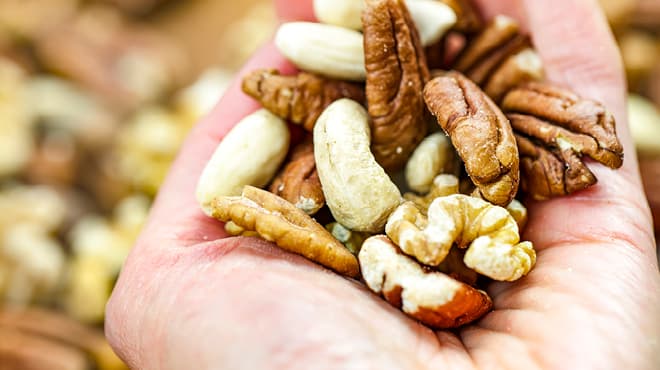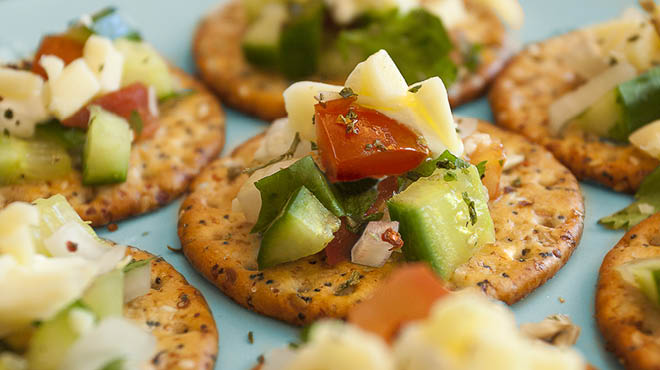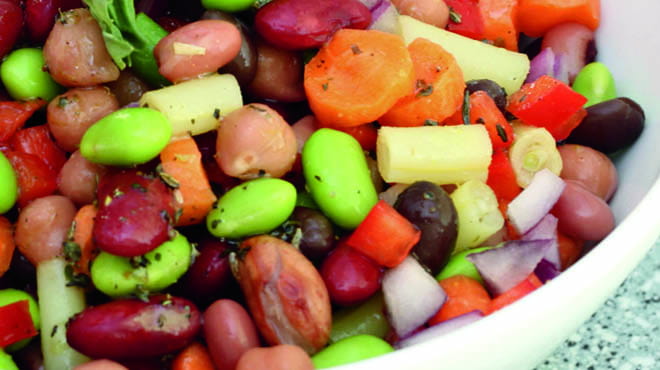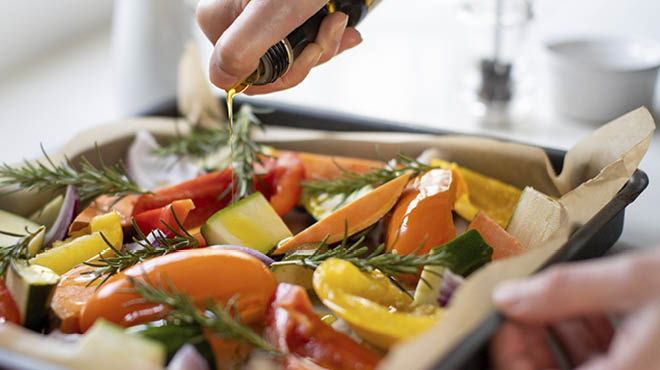Recent Posts
Timesaving tips for cooking healthy meals

Living a busy, fast-paced life can make it hard to find the motivation to cook a healthy meal at home. However, learning some shortcuts in the kitchen can keep your healthy eating goals on track and help you avoid grazing on unhealthy snacks, grabbing the first thing you see in the fridge or going out for fast food.
Why cook at home?
Research shows that maintaining a healthy weight is challenging when you eat out too frequently. Restaurant portions often are super-sized and can easily contain a day's worth of calories and sodium.
With a bit of planning, cooking at home can be doable and enjoyable.
Timesaving strategies
Menu planning is one of the best ways to cook healthy meals. Sure, meal planning takes time on the front end. But if done right, it saves you valuable time in the kitchen.
One easy way to start meal planning is to pencil in theme nights, such as:
- Meatless Monday
- Taco Tuesday
- Leftover Wednesday
- Breakfast for dinner Thursday
- Fish Friday
- Soup and salad Saturday
Set Sunday aside for planning and prepping meals for the week. That might be the day you treat yourself to a dine-in or take-out dinner.
If you prefer to improvise, you can still create a healthy, balanced meal. Use the plate method to evaluate your meal by asking:
- Do I have three food groups represented?
- Do I have the right portions?
Start with the vegetables since they should be the largest portion of your meal. If there aren't any planned for your meal, add carrot or celery sticks, sliced tomatoes or a spinach salad.
Step-by-step meal planning
These steps can simplify and streamline your meal planning:
Step 1: Set aside time twice a week for food prep.
Chop and cook ahead for the next three to four days. Pack veggies or meats in meal-sized portions for the fridge.
Step 2: Try batch cooking.
Cook once for multiple meals. Here are some ideas:
- Cook a big batch of brown rice. Use some for a side dish one day, in a casserole the next and in a stir fry the day after.
- Brown extra ground meat and divide it up for casseroles, tacos and salads. Refrigerate what you can use within three to four days and freeze the rest in recipe-ready portions.
- Prepare extra pasta and set aside some for a cold salad the next day.
- Make a large pot of homemade soup or chili and freeze it in smaller portions.
- Mix a double recipe of meatloaf and divide it in half. Bake one half as a meatloaf, roll the other half into meatballs and freeze. You also can freeze leftover meatloaf slices for sandwiches.
- Simmer chicken breasts or a roast in the crockpot, and slice leftovers for sandwiches later. You also can freeze individual portions for a quick reheat later in the week.
Step 3: Overlap ingredients.
Think of different meals with similar ingredients and assign them to the same week's plan. For example, a meal of brown rice, chicken and sauteed vegetables one day can become a chicken, rice and veggie soup the next. The same basic ingredients can be used for veggie lasagna and veggie pizza. Prep all the veggies for a week's worth of meals.
Step 4: Recycle your menus.
Once you plan out a few weeks, repeat the menus. You'll know what worked and what didn't, so tweak your menus as needed.
Timesaving cooking ideas
Mason jar meals
Try preparing meals in a Mason jar. They're portable, have fixed portions, and can be low in fat and sodium because you control the ingredients. Create a variety of salads, yogurt parfaits, scrambled eggs, pasta or overnight oats and pack them in each jar. Make ahead of time so they're ready to go when you are.
Sheet pan suppers
No one likes washing the dirty prep and cooking dishes. But you can cut down on the quantity of dishes by using a single sheet pan to bake a complete meal. Choose a larger sheet pan to bake salmon or chicken and roasted vegetables, chicken fajitas or a seafood boil. Cut items that take longer to cook, such as meat, potatoes and root vegetables, into smaller pieces so everything is done at the same time. Use the same concept for one-pot meals, such as chili, soups, stews and casseroles, to save on cleanup time.
Foil pack meals
For easy-to-clean-up meals, place a piece of fish, chicken or a ground beef patty on individual sheets of aluminum foil. Add frozen vegetables and seasonings and, if desired, sprinkle with a bit of cheese or add quartered small red potatoes. Securely fold the top and sides of the foil, and bake in the oven or cook on the grill.
Try these healthy meal ideas when you're in a hurry:
- Fried egg sandwich
Serve on a whole-grain English muffin along with a piece of fruit. - Light lunches
Mix-and-match tuna or hummus, whole-grain crackers, fruit and veggie sticks, and a glass of milk. - Main dish pasta salad
Mix leftover cold pasta with tuna or another protein, vegetables and light mayo. - Microwaved oatmeal
Pair with fruit and a hard-boiled egg. - Prepared frozen meals
Look for meals that include whole grains and have 600 milligrams or less of sodium per serving. Serve veggies or yogurt with fruit as sides. - Stir fry
Saute steak, chicken or tofu with frozen vegetables and brown rice. - Whole-grain pita pizza
Add a side salad.
You're ready to meal plan
Remember, the key is to balance your meal by including at least three of the five food groups: fruits, vegetables, grains, protein foods and dairy. Think about "eating the rainbow" as you choose fruits and vegetables to reach the five to nine recommended servings per day.
Healthy meal planning doesn't need to be difficult or time-consuming. Make a quick check to see what's in your pantry, refrigerator and freezer. Then, based on those ingredients, create a plan and a weekly grocery shopping list to match.
Kristi Wempen is a registered dietitian in Nutrition in Mankato, Minnesota.






